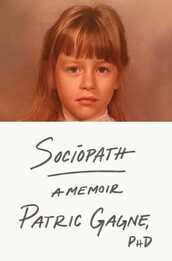|
On February 25, the New York Times published a piece by David Marchese called, "What It's Like To Be a Sociopath." The piece is an interview with Patric Gagne, the author of "Sociopath," a book which Marchese describes as "her buzzy forthcoming memoir, to try to correct some of those misunderstandings [about sociopathy] and provide a fuller picture of sociopathy, which is now more frequently referred to as antisocial personality disorder."
My comment, which follows, has received 521 recommendations. ::::: As a prosecutor who specialized in murder cases for more than a quarter century I would agree that sociopathy, technically anti-social personality disorder, doesn’t necessarily mean violent or criminal behavior. The best way to describe it as that if someone were genuinely colorblind, they may not be able to see certain colors on the spectrum. The sociopath doesn’t share the same emotional spectrum, and as the author admits, are free of the social constraints that restrain most of us.. The vast majority of the people I prosecuted were not sociopaths, but people with substance abuse disorders, lazy, or unlucky. The next, smaller cohort are people who knew what they were doing was wrong, but simply made a considered decision that selling drugs or robbing banks was an easier way of making a living than traditional methods. True sociopaths constitute a single digit of the criminal population, and can be particularly terrifying and fascinating. Just as many other social behaviors are learned, so are what this author calls “neurotypical” responses to something like a small animal or baby. The significant difference is that the sociopaths that I dealt with genuine pleasure out of hurting other living things and people. Ultimately I can have nothing but pity for the person who lacks the emotional bandwidth to understand empathy, and all that goes with it. ###END Guest column: No need to remove bar exam to ensure equality
Bend Bulletin Tuesday, July 13, 2021 What started as first a practical problem then turned into a moral panic for the Oregon State Bar, a quasi-private, quasi-governmental authority that regulates admission and regulation of lawyers, is now becoming a problem for the state and most importantly, their clients. The bar’s efforts were most recently documented in a July 7 editorial in The Bulletin and then a disapproving follow-up by a Rocky Goodell, a Bend lawyer licensed in Oregon and California. In full disclosure I have been practicing law for 40 years since being admitted in 1981. Working almost exclusively in criminal law, I was chief deputy district attorney in Bend in the ’90s, as well as similar jobs in other Oregon counties, before becoming the district attorney in Astoria for 25 years. Although I had been working in a DA’s office for 6 years before taking the bar exam, I narrowly flunked my first try, then learning the one question (out of two dozen) that caused me to fail was “criminal law.” I studied harder and passed the bar six months later, and even went on to be recruited to write and grade the criminal question about 15 years later. Over the years, between 55% and 75% of those taking the bar passed it. Some of Oregon’s most prominent politicians have repeatedly flunked the bar. It is not an intelligence test or even a test of legal acumen That is why — like medicine — we call it the “practice of law.” Last year the Oregon bar did something remarkably detrimental to both their clients and their members; in the face of COVID-19, they simply threw up their hands and decided anyone — anywhere in the U.S. — who graduated from a law school approved by the American Bar Association would be granted admission to the bar, no exam needed. These “2020 specials” will have several disadvantages; most states will not let them apply without what is called “multistate bar exam” passing grades. In the long term, the employability of many of these new lawyers is at risk. Since an average of about 40% of applicants flunk, in 2020 they are all “lawyers.” I’m sure there are at least 60% to 70% of those who will make adequate to great lawyers. But if I was still employing lawyers, I’d hesitate at the lack of the vetting of a 2020 graduate, and I suspect more clients may look for someone admitted in 2019 instead. But I’m no longer practicing more than part time, and mostly pro bono. To make things worse, The Bulletin approvingly tells us that the bar is experimenting with a new program as a permanent alternative to the dreaded bar exam; one would be a different class plan which proves skills in research, oral argument, and teamwork. The other would be an apprentice program requiring 1,000 to 1,500 hours of supervised internship. Both ideas have great merit, but in addition to, not in place of, a bar exam. The stated goal, is of course, to achieve greater “equity.” At what point do you hold all people with “doctor of jurisprudence” at the end of their title an equal need for competence? The Bulletin favored these proposals, saying they would mitigate a process that “can be unfair to some students who can’t devote the time to study for it full-time and creates racial disparities.” In what world would it be fair to say that because of their melanin levels, some lawyers don’t really have (or, more importantly, are presumed unable) to achieve as much, presumably creating a two-tier system for lawyers who are unconditionally qualified and those that are not. Under the existing system, the percentage of minority judges in Oregon far outstrips the percentage of minority lawyers in the state. Isn’t that what Dr. Martin Luther King Jr. always sought? A measure of the content of character, not the color of skin? Joshua Marquis was chief deputy district attorney in Bend from 1990-94 and appointed, then elected, as district attorney in Astoria from 1994 through 2018. One of the least-noticed effects of COVID isolation has been the lack of public mourning for people who have died over these past months, whether or not the pandemic played any role in their demise.
I just found out that Thane Tienson, a prominent Portland attorney who came from Astoria and never forgot his home, died suddenly at the age of 74. Thane was a robust and well-met fellow who made an impact on Oregon, the law, and Astoria. Like too many others during these plague times, he will be missed. I also learned, only through references in social media, that long-time coast TV journalist Dave Pastor died a few months ago. These trees did make a sound, even if nobody heard them fall in the forest of our lives. |
JOSHUA MARQUIS on
criminal justice, animal welfare, and the nature of the relationship between popular culture and the law. Archives
March 2024
See the Archives page for an index of all posts, including those prior to January 2019.
Categories |


